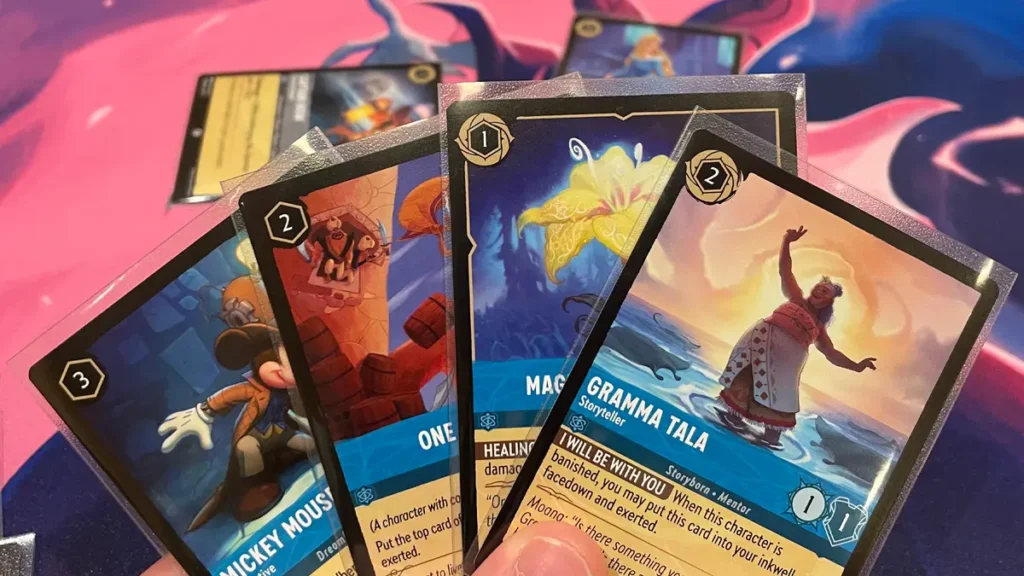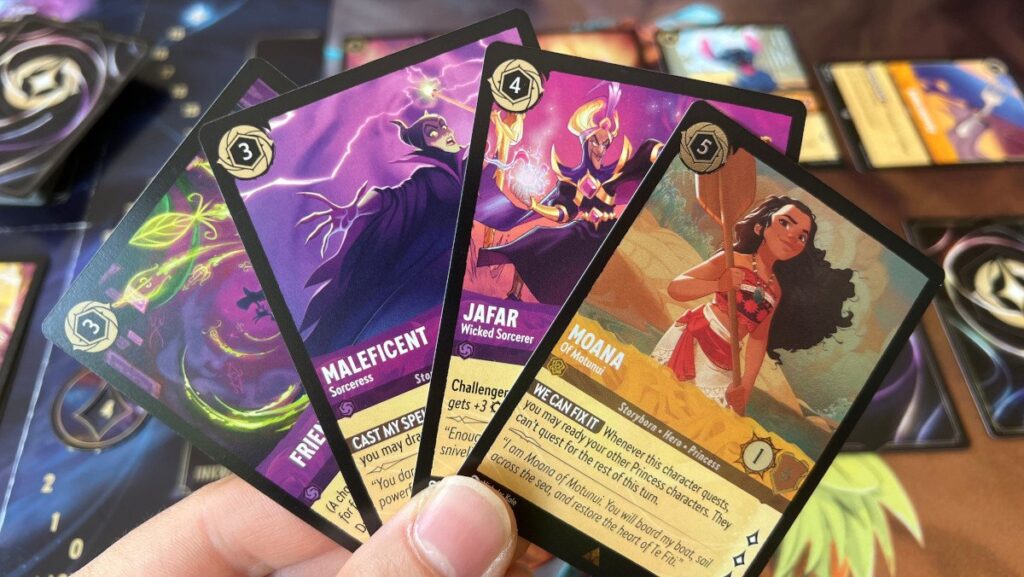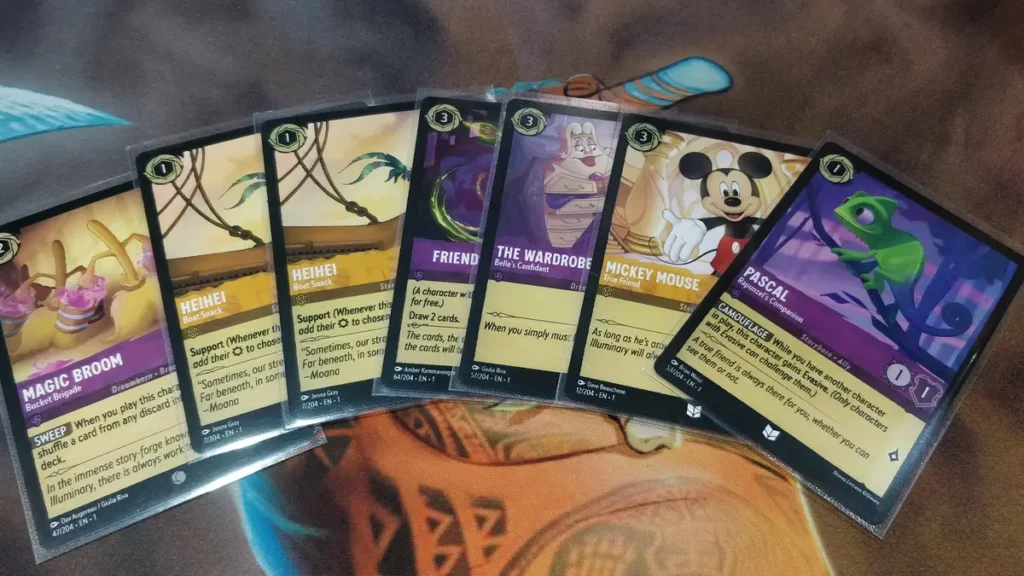At the start of every Lorcana event at my local game store, the organizer makes the exact same announcement: “You will only have 50 minutes to complete a best of three,” he says. “So it would behoove you to play quickly.” Every time he says it, there’s a notable hush over the crowd. Some are probably just trying to remember what ‘behoove’ means, but the rest are trying to manage their anxiety over this new layer of stress. Winning games is hard enough, but winning games quickly is an entirely different challenge.

In a way, the time limit is a self-correcting function of the meta, particularly as slow, grindy decks start to see less play as we get deeper into the season. Last season, I wrote about how time constraints function as a gameplay mechanic and help shape Lorcana’s meta. Decks that dominate in an environment without time limits, like Ruby/Amethyst control, don’t perform quite as well in timed rounds, where games can end in ties. It’s an important variable to consider when building a deck for an in-person event, as it has a big influence on your playstyle. Since the launch of Rise of the Floodborn, however, I’ve been thinking more and more about the way time limits, and the necessity to play quickly, create something of an accessibility issue in the game.
While Ruby/Amethyst decks have gotten better at closing out never-ending games thanks to new tools like Merlin, Goat, and The Sorcerer’s Spellbook, finishing all three rounds in a match has only gotten more difficult. Not only do we still have issues with mirror matches going to time, especially with midrange decks like Steelsong, but we now have a greater preponderance of control-themed decks thanks to Ruby/Sapphire Pawpsicle, Amethyst/Steel, and Sapphire/Steel all finding a place in the meta. And with Ruby/Amethyst decks now stronger than ever, players are running into more mirror matches at events and finishing with more ties.

Going to turns isn’t an experience unique to Lorcana, but it’s becoming a major pain point at my LGS. On a typical Lorcana game night, practically everyone will end with at least one tied game, if not more. Events that used to go to four matches in a night are now ending in three with only one undefeated player simply because so many games are ending in ties. If it was just a matter of experience and playing efficiently it would be one thing, but as someone that ties rather frequently, it never feels like my games are going slow, or either player is taking an unnecessarily long time to play their turn. Games are ending in ties not because people aren’t playing fast enough, but because the game as it’s designed doesn’t fit in a 50-minute, best-of-three format, and that’s a problem.
Though many will see the speedy player slamming cards down and assume they know what they’re doing, playing well and playing quickly are two completely different skill sets, and one is more trainable than the other. While it’s certainly the case that practice and confidence (which go hand-in-hand) will help you become a faster player, for many, there’s a cognitive limitation to how quickly strategies can be formed and turns can be played.
At a certain point, the temporal demands of the format become an accessibility issue for Lorcana. It’s not enough to build a good deck and pilot it well; you have to also be able to ideate very quickly, and that’s not something everyone can do, no matter how much they practice.

I’m all for a ‘Blitz Chess’ style speed format for Lorcana, as long as that isn’t the default format for the game. Lorcana is still in its infancy, and it’s highly likely that new cards and mechanics, including the upcoming Location cards, will speed up the average game time to a point where everyone can play at a reasonable speed without fear of a DNF on their scorecard. It’s stressful enough to enter a face-to-face competition with another person, and right now the clock is playing a much bigger role in the game than it ought to.
Time is a necessary evil, but it shouldn’t dictate the game the way it is right now, nor should it be the most difficult skill check to overcome – that’s what playing around Be Prepared is for.



